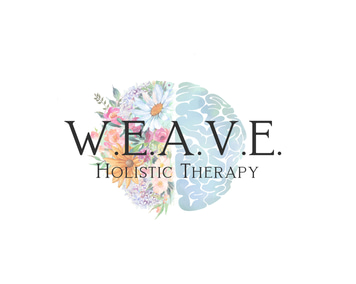Supportive, open, honest connections
20% of adults in the U.S. have expressed interest in some form of consensual non-monogamy, even if they have not practiced it, indicating that many people are open to exploring non-traditional relationship structures (Haupert et al., 2017).
20%


Studies have shown that people in CNM relationships experience up to 20% lower levels of jealousy than monogamous individuals. (Conley et al., 2017).
Polyamorous Relationship Therapy
Polyamorous Relationship Therapy provides a safe, nonjudgmental space to explore the unique dynamics, strengths, and challenges of polyamorous and non-monogamous relationships. Whether you’re already practicing polyamory, curious about it, or looking to improve communication with multiple partners, this is a place where your relationship structure is respected and supported.
Who Is This For?
This therapy is for anyone navigating or exploring ethical non-monogamy, including those who are considering entering the lifestyle. It’s especially helpful if:
You’re in a polyamorous or open relationship and want extra support.
You and your partner(s) are exploring polyamory for the first time and want guidance on transitioning into this lifestyle.
You and your partners want to work on communication, boundaries, jealousy, or balancing time together.
Here, you’ll find tools to strengthen your connections, foster understanding, and navigate the journey into or within polyamory with confidence.




Benefits of CNM Relationship Therapy
CNM Relationship Therapy offers a supportive space to strengthen the foundations of your relationships, helping you build stronger connections and manage the unique challenges of non-monogamous dynamics. Here are some of the benefits you can expect:
Improved Communication and Trust: Develop clear, open lines of communication and build trust among all partners, creating a foundation of honesty and mutual respect.
Enhanced Emotional Resilience: Learn to navigate complex emotions with greater understanding, resilience, and self-awareness, so you’re better equipped to handle the ups and downs.
Greater Harmony and Balance: Find strategies for balancing time, energy, and attention within your relationship structure, fostering harmony across all connections.
Practical Tools for Challenges: Gain tools and insights to manage common challenges like jealousy, boundary-setting, and shifting dynamics.
CNM Relationship Therapy can help you grow together, deepen your connections, and navigate the complexities of polyamory with confidence and compassion.

Frequently asked questions
How is polyamory different from other forms of ethical non-monogamy?
Polyamory specifically emphasizes maintaining multiple loving and emotionally connected relationships. Other forms of ethical non-monogamy, such as open relationships or swinging, may prioritize physical connections without long-term emotional bonds.
Do all partners need to attend every therapy session?
Not necessarily. Some sessions may benefit from having all partners present, while others might be more productive with individual sessions. We can customize the approach based on what works best for everyone involved and the specific dynamics or issues being addressed
Can polyamory therapy help us transition from monogamy to polyamory?
Yes! Therapy can provide a safe space to explore the idea of opening up your relationship, discuss fears and expectations, and establish clear boundaries and communication strategies. This can help make the transition smoother and more intentional for everyone involved.
How do you handle confidentiality when multiple partners are involved?
Confidentiality is a priority in polyamory therapy, and we work carefully to maintain it. We’ll discuss boundaries and consent regarding what can be shared and ensure that each partner’s privacy is respected, while still addressing shared goals as a group.
Can polyamory therapy address issues with metamours (partners of my partner)?
Yes, we can absolutely explore metamour relationships in therapy. Navigating metamour dynamics can sometimes bring up unique challenges, and therapy can provide tools for fostering understanding, respect, and communication among all parties involved, even if they’re not in a direct relationship with each other.
Can polyamory therapy help if we’re thinking of ending or restructuring our relationship?
Yes, therapy can help you navigate decisions about ending or restructuring relationships with care and compassion. We can work on facilitating honest discussions, processing emotions, and exploring alternative relationship structures that might better align with your needs.
W.E.A.V.E Therapy Practice
Monthly "Wellness Minute" Newsletter
officeadmin@weavetherapypractice.com
301-301-2270
© 2024. All rights reserved.
A simple monthly email with tips, prompts, and tools designed to help you thrive.
The information provided on this website is for general informational purposes only and should not be construed as professional advice. Always seek the advice of a qualified mental health professional regarding any mental health concerns. All content on this website, including text, images, and graphics, is the property of W.EA.V.E Therapy Practice (Collective Eudaimonia, LLC) and is protected by copyright law. Unauthorized use or reproduction of any content is prohibited.
